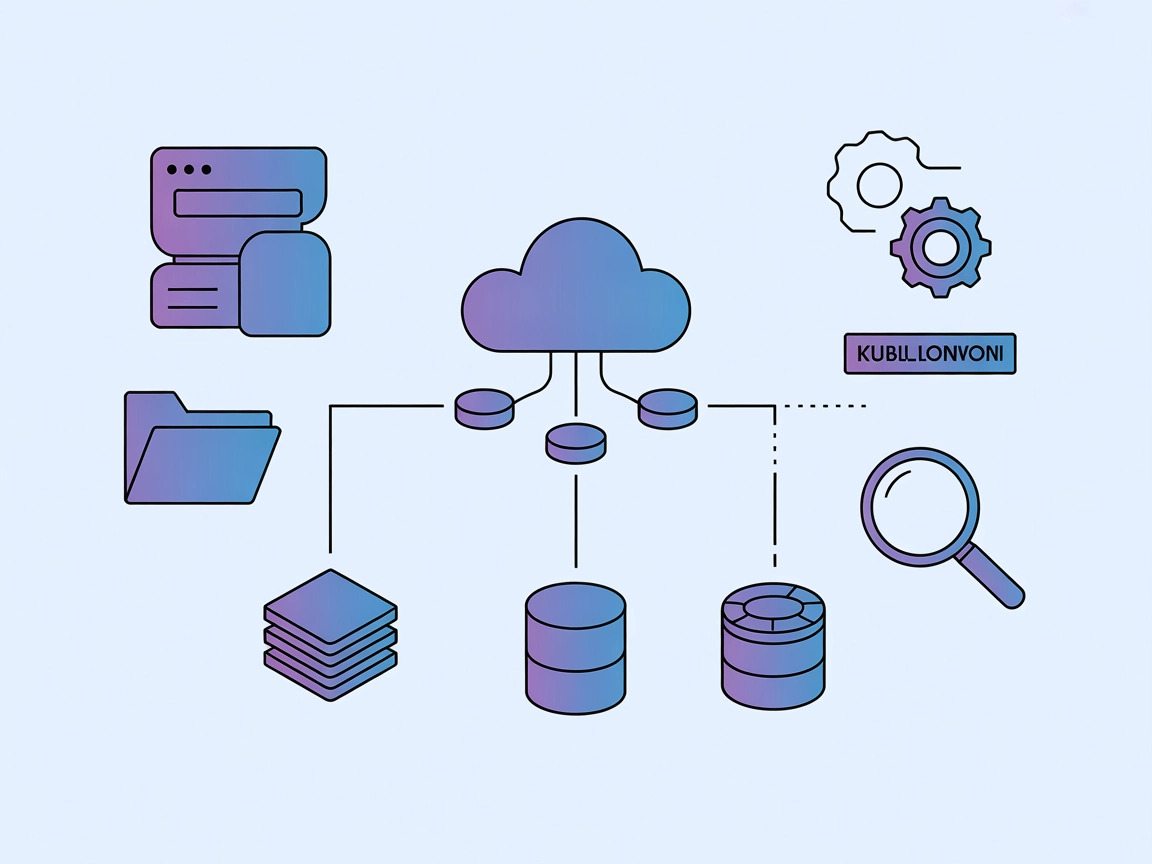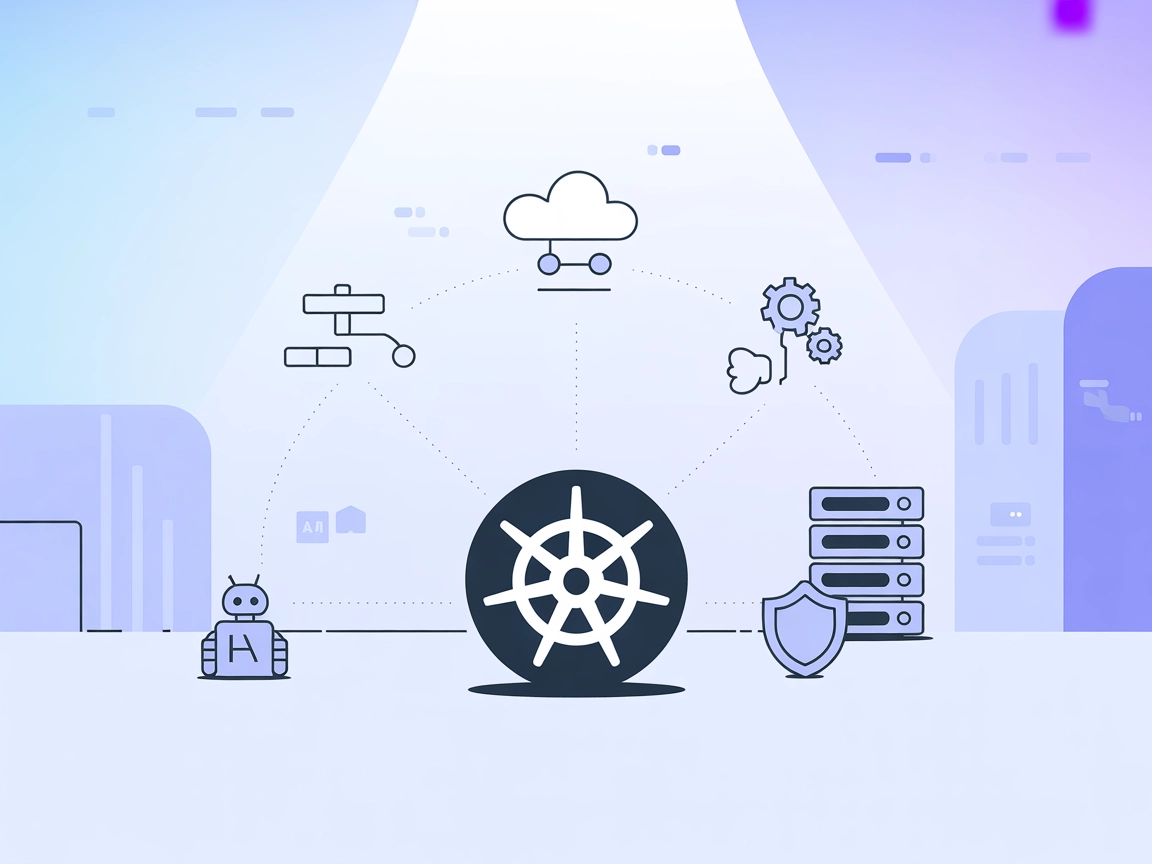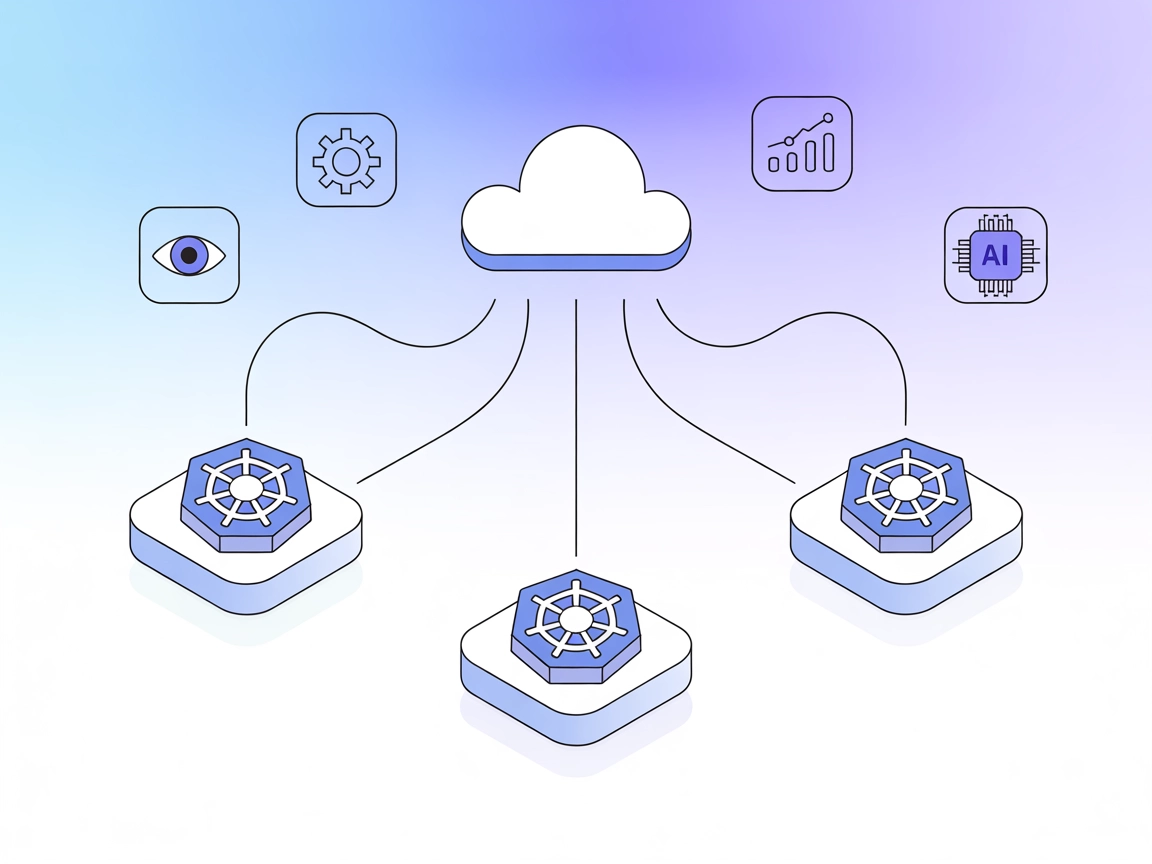
Kubernetes MCP Server
The Kubernetes MCP Server bridges AI assistants and Kubernetes/OpenShift clusters, enabling programmatic resource management, pod operations, and DevOps automat...

Empower FlowHunt with Kubernetes automation—manage, monitor, and control Kubernetes clusters via natural language and AI-driven flows.
FlowHunt provides an additional security layer between your internal systems and AI tools, giving you granular control over which tools are accessible from your MCP servers. MCP servers hosted in our infrastructure can be seamlessly integrated with FlowHunt's chatbot as well as popular AI platforms like ChatGPT, Claude, and various AI editors.
The Kubernetes MCP Server acts as a bridge between AI assistants and Kubernetes clusters, enabling AI-driven automation and management of Kubernetes resources. By exposing Kubernetes management commands through the Model Context Protocol (MCP), this server empowers developers and AI agents to perform tasks such as deploying applications, scaling services, and monitoring cluster health. With its integration, users can interact with Kubernetes clusters programmatically, execute common administrative tasks, and streamline DevOps workflows via natural language or AI-driven prompts. This powerful interface enhances development productivity, supports complex automation scenarios, and provides a standardized way for AI systems to interact with Kubernetes infrastructure.
No prompt templates are mentioned in the available documentation.
No explicit resources are described in the available documentation or repository files.
No specific tools are enumerated in the available documentation or server code listing.
windsurf.config.json).mcpServers object:{
"mcpServers": {
"kubernetes-mcp": {
"command": "npx",
"args": ["@Flux159/mcp-server-kubernetes@latest"]
}
}
}
Securing API Keys Example:
{
"mcpServers": {
"kubernetes-mcp": {
"command": "npx",
"args": ["@Flux159/mcp-server-kubernetes@latest"],
"env": {
"KUBECONFIG": "/path/to/kubeconfig"
},
"inputs": {
"cluster": "your-cluster-name"
}
}
}
}
{
"mcpServers": {
"kubernetes-mcp": {
"command": "npx",
"args": ["@Flux159/mcp-server-kubernetes@latest"]
}
}
}
cursor.config.json).{
"mcpServers": {
"kubernetes-mcp": {
"command": "npx",
"args": ["@Flux159/mcp-server-kubernetes@latest"]
}
}
}
{
"mcpServers": {
"kubernetes-mcp": {
"command": "npx",
"args": ["@Flux159/mcp-server-kubernetes@latest"]
}
}
}
Note: For all platforms, secure access to your Kubernetes cluster by specifying the KUBECONFIG path via the env object in your configuration. Place secrets (API tokens, kubeconfig paths) in environment variables rather than in plain JSON.
Using MCP in FlowHunt
To integrate MCP servers into your FlowHunt workflow, start by adding the MCP component to your flow and connecting it to your AI agent:

Click on the MCP component to open the configuration panel. In the system MCP configuration section, insert your MCP server details using this JSON format:
{
"kubernetes-mcp": {
"transport": "streamable_http",
"url": "https://yourmcpserver.example/pathtothemcp/url"
}
}
Once configured, the AI agent is now able to use this MCP as a tool with access to all its functions and capabilities. Remember to change “kubernetes-mcp” to whatever the actual name of your MCP server is and replace the URL with your own MCP server URL.
| Section | Availability | Details/Notes |
|---|---|---|
| Overview | ✅ | |
| List of Prompts | ⛔ | |
| List of Resources | ⛔ | |
| List of Tools | ⛔ | |
| Securing API Keys | ✅ | Env example |
| Sampling Support (less important in evaluation) | ⛔ |
Between these two tables, I would rate this MCP server as a 5/10: It provides a well-known and valuable integration (Kubernetes management), is open-source and popular, but lacks detailed documentation on prompt templates, explicit resources, and tool listing.
| Has a LICENSE | ✅ (MIT) |
|---|---|
| Has at least one tool | ⛔ |
| Number of Forks | 114 |
| Number of Stars | 764 |
It’s a bridge between AI assistants and Kubernetes clusters, allowing programmatic, AI-driven automation and management of Kubernetes resources via the Model Context Protocol.
AI agents can deploy applications, scale services, monitor health, trigger rollouts or rollbacks, and manage cluster configurations—all using natural language or automated flows.
Set the KUBECONFIG path as an environment variable in your MCP server configuration. Avoid hardcoding sensitive secrets in plain JSON; use environment variables or secure storage.
No explicit prompt templates or resource lists are provided in the documentation. The server exposes core Kubernetes management via MCP commands.
This integration supports cluster management, automated deployments, monitoring, configuration updates, and rapid incident response—all streamlined by AI-driven workflows.
Seamlessly automate Kubernetes management and DevOps workflows with AI-powered MCP integration in FlowHunt.

The Kubernetes MCP Server bridges AI assistants and Kubernetes/OpenShift clusters, enabling programmatic resource management, pod operations, and DevOps automat...

The Multicluster MCP Server empowers GenAI systems and developer tools to manage, monitor, and orchestrate resources across multiple Kubernetes clusters via the...

The mcp-k8s-go MCP Server enables AI assistants to interact programmatically with Kubernetes clusters via Model Context Protocol, automating and streamlining De...
Cookie Consent
We use cookies to enhance your browsing experience and analyze our traffic. See our privacy policy.